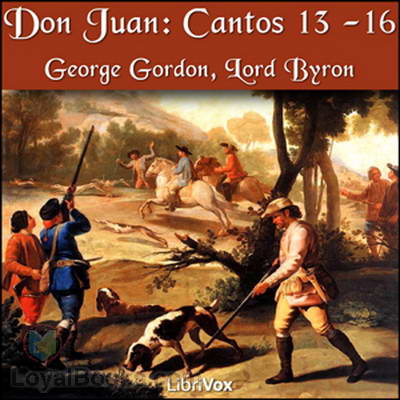
By: Lord George Gordon Byron (1788-1824)
Lord George Gordon Byron's Cantos 13-16 of Don Juan is a remarkable continuation of the epic poem that follows the adventures and misadventures of the titular character. In these cantos, Byron weaves a tapestry of love, lust, and betrayal as Don Juan navigates through various romantic entanglements and political intrigue.
Byron's wit and satire are on full display in these cantos, as he skewers the hypocrisy and shallowness of society and its institutions. His writing is rich and poetic, filled with vivid imagery and sharp insights that leave a lasting impression on the reader.
The character of Don Juan continues to be a complex and enigmatic figure, alternately charming and repugnant, a victim of his own desires and the whims of fate. Byron's portrayal of him is both sympathetic and critical, highlighting the contradictions and complexities of human nature.
Overall, Cantos 13-16 of Don Juan is a masterful work of literature that showcases Byron's talent as a poet and his keen understanding of human behavior. It is a gripping and thought-provoking read that will leave readers pondering the nature of love, desire, and morality long after they have finished the last page. Book Description:
These are the last four Cantos of his mock epic that Byron completed in the year before his death at the age of 36 in Messolonghi, Greece, where he had gone to fight for the nationalists against the Ottoman Empire. Juan, now in England, is invited to spend the autumn with a hunting party at the ancient country seat of Lord Henry and Lady Adeline Amundeville. There, he meets the most intriguing of the Byronic heroines, Aurora Raby, and is visited by a ghost with ample breasts (!). That is the narrative outline but hardly the focus of the last Cantos. Byron is more interested satirizing the frailty of faith, the fecklessness of the English aristocracy, the futility of English pastimes and the fawning of elected Members of Parliament over their middle-class constituents. Booze, banquets, belles and bishops are given the Byronic treatment, while his spleen is reserved for his critics and for "tyranny".
|
